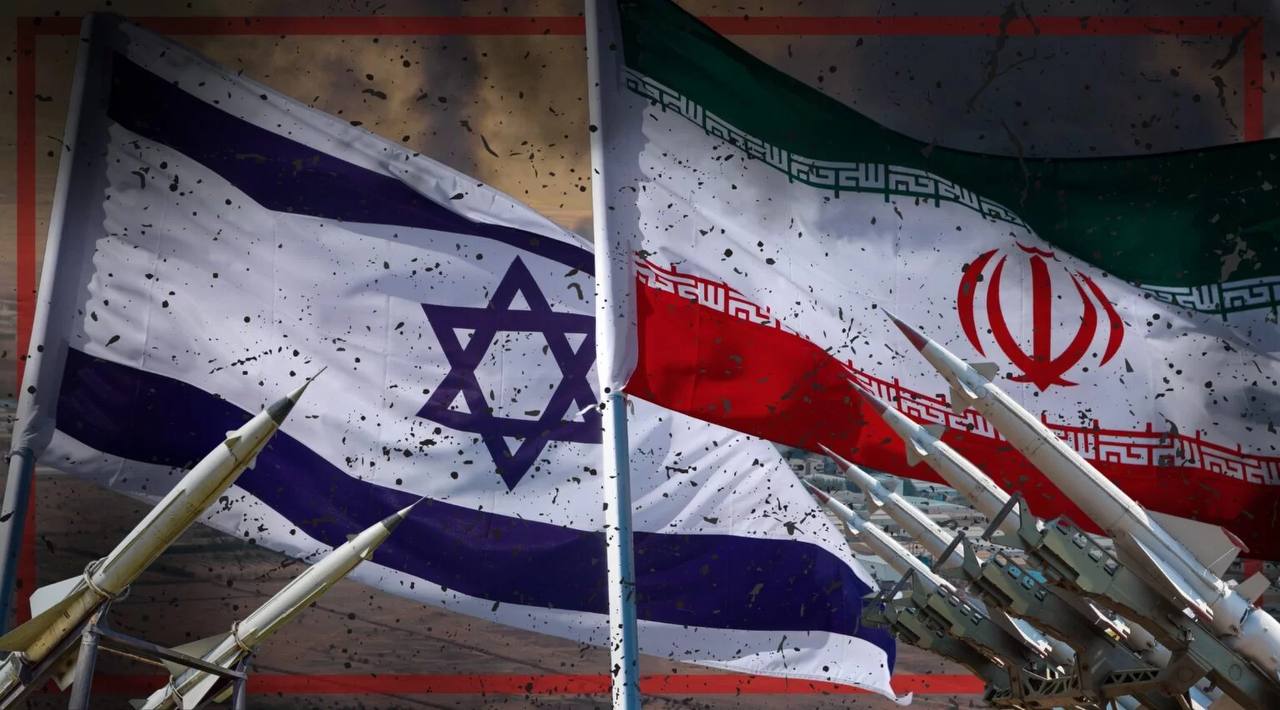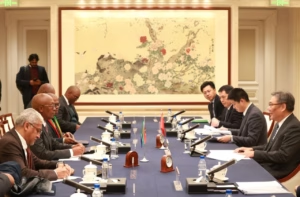In the aftermath of a high-stakes military gambit, Israel now finds itself confronting the sobering reality that its initial strike on Iran did not achieve the decisive result envisioned by its leadership. While some in Tel Aviv may have anticipated a swift and crippling decapitation strike, what unfolded instead was a lesson in strategic endurance and preparedness on Tehran’s part.
“As expected, Israel’s opening gambit didn’t go exactly according to plan.”
At the heart of this miscalculation lies the belief—widely assumed to be encouraged by senior figures in Washington and supported by what some analysts refer to as the “ziocon” establishment—that a bold, overwhelming first move would compel Iran to acquiesce. The expectation was that Iran, overwhelmed and leaderless, would bend to American directives.
“In all likelihood, Netanyahu and the ziocon Deep State convinced Trump that a shock-and-awe decapitation strike would have inflicted a decisive blow on Iran and broken the back of the Persian Lion, making it accept Washington’s diktats.”
Yet, Iran’s response has been markedly different. Rather than collapse under the weight of precision strikes and sabotage operations, the Iranian leadership has demonstrated both resilience and strategic patience. The Islamic Republic has not only withstood the initial barrage but has also begun retaliating in kind, albeit with calculated restraint.
Iran’s Calculated Retaliation and Strategic Depth
Despite early reports in the Israeli media suggesting the destruction of numerous Iranian air defence systems, later revelations indicate that many of these were decoys, carefully deployed to mislead attackers. Furthermore, the country’s critical infrastructure—particularly strategic missile bases—has long been relocated underground, beyond the reach of most conventional air strikes.
“Most of the strategic assets have been moved underground, at great depths, where Israeli strikes cannot reach them. Many of the AD batteries that Israeli media gleefully reported as ‘destroyed’ turned out to be decoys.”
This subterranean network, combined with a wide geographic expanse and rugged mountainous terrain, affords Iran a substantial defensive advantage. In contrast, Israel’s infrastructure is far more condensed and vulnerable. This asymmetry now defines the conflict’s tempo: Iran has the latitude to determine escalation, while Israel is compelled to act.
“Iran seems intent on playing the long game, sitting on a stockpile of missiles and suicide drones estimated at the very least in the thousands.”
Iran’s arsenal includes thousands of missiles and drones, and crucially, many of its current operations employ older, surplus technology—signalling that its most advanced weapons remain in reserve. The use of older hardware serves both to conserve its military resources and to send a message: Tehran can sustain this exchange far longer than its adversary.
“The difference here, as the Iranian leadership itself says, is that they’re using almost exclusively their old equipment, with the odd modern hypersonic missile or two.”
Israel’s Shrinking Options and the Nuclear Dilemma
While Israel’s early operations relied heavily on sabotage, car bombings, and drone strikes, the frequency of missile launches appears to be tapering off—possibly a sign of dwindling resources or strategic recalibration. The risk for Israel lies in running out of effective options, with each covert operation becoming more difficult to repeat successfully.
“Israel, meanwhile, may soon find itself running out of options, especially since the same covert op tricks become increasingly more difficult to pull off the more they are used.”
One option, however taboo, still lingers in strategic discussions: the potential use of nuclear weapons. Yet, the implications are enormous. Not only would this confirm what Israel has long denied—its possession of nuclear arms—but it would also render the state a global pariah. More alarmingly, the densely populated geography of Israel means any retaliation by Iran, even with conventional missiles, could mimic the destructive impact of a nuclear exchange.
“Of course, there is also the possibility of using a nuclear warhead, but this comes with its own set of problems as it’d make Israel even more of a world pariah state, and it would also be a defacto admission of having them, something that by official policy they still deny.”
Washington’s Waning Influence and Iran’s Nuclear Brinkmanship
As the confrontation intensifies, Washington’s capacity to mediate has all but evaporated. Publicly, the United States continues to posture as a diplomatic force, but the reality on the ground suggests otherwise. The credibility of mediation efforts is further undermined by former President Donald Trump’s perceived duplicity and longstanding ties with Israeli hardliners.
“The vast majority if not all chances of a settlement have been blown out of the window now; Israel shows no signs of wanting to back down, which makes all of Washington’s attempts at ‘mediation’ largely pointless, and that’s without considering Trump’s open duplicitousness.”
Tehran, meanwhile, has its own decisions to make. A parliamentary vote is set to determine whether the country will remain a signatory to the Nuclear Non-Proliferation Treaty (NPT). Should Iran exit the agreement, it would pave the way for it to pursue nuclear weapons openly—an outcome that would drastically alter the regional power balance and likely provoke even more aggressive responses from Tel Aviv.
“The Iranian parliament, for its part, is going to hold a vote tomorrow on whether or not they should leave the NPT, which would allow them to fully build nukes – something Israel definitely does not want.”
In such a scenario, any middle-ground solution evaporates. Either Iran is brought to heel militarily, or it becomes a nuclear-capable state. For decision-makers in Washington, the stakes could not be higher.
“There can be no middle road here: either an attempt is made to fully bring Iran under heel, resulting in a strategic defeat of Iran, or Iran will leave the NPT and start working towards construction of a nuclear bomb.”
The Global Chessboard: Allies, Risks and Strategic Fallout
Any decision to escalate militarily will not occur in a vacuum. Iran is not isolated—its geopolitical significance is underscored by its alliances and the vested interests of several major powers. Russia, China, and Pakistan all have strategic reasons to oppose a collapse of the Iranian state.
“Russia doesn’t want Iran to collapse because it’d expose an enormous weakness on its southern front, China doesn’t want Iran to collapse because it needs Iran’s hydrocarbons and has invested far too much in infrastructure projects, and Pakistan doesn’t want Iran to collapse because a zionist puppet would mean being caught between a rock and a hard place, with India already occupying one of their flanks.”
For the United States, the challenges are not merely geopolitical but logistical. Its recent engagements—particularly in the Red Sea against Houthi forces—have highlighted serious limitations in both capacity and results.
“The first, is that the USA have already tried to bring the Houthis – an opponent with maybe one tenth of Iran’s industrial and military capabilities – under heel, and ran away from the Red Sea with their tails between their legs.”
Moreover, the strain of military engagement with Iran would place an enormous burden on American and NATO supply chains. Given the already overstretched support for Ukraine, a new conflict would likely force the United States to choose where to commit its finite resources. The risk multiplies if China decides to exploit the moment to take action on Taiwan.
“Engaging in a conflict with Iran will result in an enormous consumption of ordnance… in turn means delaying the US’ plans for rearmament for a full conventional war, as well as the end of all military aid to Kiev.”

















